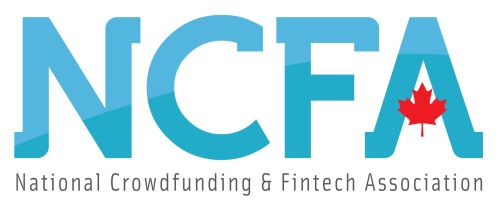Startups and Scaleups | Nov 1, 2023

 Image: Unsplash/Tim Gouw
Image: Unsplash/Tim GouwBabbel managing director Thomas Holl shares what not to do when expanding and hiring a team in the US
Sifted ran a good article worth sharing titled “‘I made so many mistakes’: 10 things not to do when hiring a team in the US,” providing valuable insights and lessons learned from founders who have navigated the challenges of building a team in the United States. Thomas Holl, the managing director of Babbel, a Berlin-based digital language learning startup, shares his experience.
See: Strategies for Addressing Canada’s Tech Talent Gap: Leveraging Micro-Credentials, Accessible Training Programs, and Diversity in Hiring
Key takeaways from the article include:
- Salary and Compensation
- Salaries in the US are often considerably higher than in most countries, especially for tech roles. Startups need to be prepared for the higher cost of living and ensure they can bear the costs. Total compensation in the US includes health, dental, and vision insurance, as well as a solid 401(k) retirement plan.
- Legal and Recruitment Pitfalls
- The US has a complex legal landscape with laws varying from state to state. Startups need to do their legal homework to navigate employment contracts, employee rights, and laws around interviews and background checks.
- Cultural Differences and Time Zones
- Managing cultural differences, communication styles, and working habits is crucial. Additionally, time zones can pose a challenge, and startups need to find ways to ensure adequate communication and collaboration across different locations.
See: Fintech Fridays EP55: Global Hiring Trends: How Gen Z Talent Thrives
- Strategic Hiring
- Given the high costs and complexities involved, startups need to be strategic about who they recruit in the US. They should consider the specific needs of their business and the unique value that a US-based team can bring.
- Hiring Process
- While recruitment consultants can be valuable, founders need to be involved in the hiring process to ensure that new hires are the right fit for the startup.
- Building an Autonomous US Team
- Allowing the US team to operate autonomously and minimizing approval lines can help manage the culture clash between a scrappy startup team in the US and a larger, more established organization in the home country.
- Employment-at-Will
- While it is easier to terminate an employee in the US due to employment-at-will laws, startups need to conduct the process correctly to avoid legal issues. They should also consider the ethical implications of terminating an employee, as it also means losing access to healthcare.
Conclusion
Expanding a startup and building a team in the United States presents a unique set of challenges and opportunities.
See: Market Downturns are a Great Time to Build a Startup, or are they?
From navigating the complexities of salary expectations and total compensation packages to understanding the legal landscape and managing cultural differences, founders must approach this task with strategic planning and careful consideration.
While the road may be fraught with challenges, the potential rewards and growth opportunities in the US market make it a journey worth undertaking for startups looking to scale and succeed on a global stage.

 The National Crowdfunding & Fintech Association (NCFA Canada) is a financial innovation ecosystem that provides education, market intelligence, industry stewardship, networking and funding opportunities and services to thousands of community members and works closely with industry, government, partners and affiliates to create a vibrant and innovative fintech and funding industry in Canada. Decentralized and distributed, NCFA is engaged with global stakeholders and helps incubate projects and investment in fintech, alternative finance, crowdfunding, peer-to-peer finance, payments, digital assets and tokens, artificial intelligence, blockchain, cryptocurrency, regtech, and insurtech sectors. Join Canada’s Fintech & Funding Community today FREE! Or become a contributing member and get perks. For more information, please visit: www.ncfacanada.org
The National Crowdfunding & Fintech Association (NCFA Canada) is a financial innovation ecosystem that provides education, market intelligence, industry stewardship, networking and funding opportunities and services to thousands of community members and works closely with industry, government, partners and affiliates to create a vibrant and innovative fintech and funding industry in Canada. Decentralized and distributed, NCFA is engaged with global stakeholders and helps incubate projects and investment in fintech, alternative finance, crowdfunding, peer-to-peer finance, payments, digital assets and tokens, artificial intelligence, blockchain, cryptocurrency, regtech, and insurtech sectors. Join Canada’s Fintech & Funding Community today FREE! Or become a contributing member and get perks. For more information, please visit: www.ncfacanada.org
Related Posts
- SEO Powered Content & PR Distribution. Get Amplified Today.
- PlatoData.Network Vertical Generative Ai. Empower Yourself. Access Here.
- PlatoAiStream. Web3 Intelligence. Knowledge Amplified. Access Here.
- PlatoESG. Carbon, CleanTech, Energy, Environment, Solar, Waste Management. Access Here.
- PlatoHealth. Biotech and Clinical Trials Intelligence. Access Here.
- Source: https://ncfacanada.org/expanding-startups-hiring-lessons-from-babbel-in-the-us/
- :has
- :is
- :not
- 1
- 10
- 150
- 200
- 2018
- 300
- a
- About
- access
- accessible
- across
- Additionally
- addressing
- affiliates
- also
- alternative
- alternative finance
- an
- and
- approach
- approval
- ARE
- around
- article
- artificial
- artificial intelligence
- AS
- Assets
- autonomous
- autonomously
- avoid
- background
- BE
- Bear
- become
- between
- blockchain
- build
- Building
- business
- cache
- CAN
- Canada
- careful
- challenge
- challenges
- Checks
- closely
- collaboration
- Communication
- community
- Compensation
- complex
- complexities
- Conduct
- Consider
- considerably
- consideration
- consultants
- contracts
- correctly
- Cost
- Costs
- countries
- country
- create
- Crowdfunding
- crucial
- cryptocurrency
- cultural
- Culture
- decentralized
- differences
- different
- digital
- Digital Assets
- Director
- distributed
- Diversity
- do
- downturns
- due
- easier
- ecosystem
- Education
- Employee
- employment
- engaged
- ensure
- especially
- established
- Ether (ETH)
- ethical
- expanding
- expectations
- experience
- finance
- financial
- financial innovation
- Find
- fintech
- fit
- For
- For Startups
- founders
- Fridays
- from
- funding
- funding opportunities
- gap
- Gen
- Gen Z
- get
- Global
- good
- Government
- great
- Growth
- habits
- Have
- Health
- help
- helps
- High
- higher
- hires
- Hiring
- his
- Home
- homework
- How
- http
- HTTPS
- i
- image
- implications
- in
- include
- includes
- industry
- information
- Innovation
- innovative
- insights
- insurance
- Insurtech
- Intelligence
- Interviews
- investment
- involved
- issues
- IT
- Jan
- journey
- jpg
- landscape
- language
- larger
- Laws
- learned
- learning
- Legal
- Legal issues
- Lessons
- Lessons Learned
- leveraging
- lines
- locations
- looking
- made
- make
- manage
- managing
- Managing Director
- many
- Market
- max-width
- May..
- means
- member
- Members
- mistakes
- more
- most
- must
- Navigate
- navigating
- Need
- needs
- networking
- New
- nov
- of
- often
- on
- operate
- opportunities
- or
- organization
- packages
- partners
- payments
- peer to peer
- perks
- plan
- planning
- plato
- Plato Data Intelligence
- PlatoData
- please
- pose
- potential
- prepared
- presents
- process
- Programs
- projects
- provides
- providing
- recruit
- recruitment
- Regtech
- retirement
- Rewards
- right
- rights
- road
- roles
- s
- salary
- Scale
- Sectors
- Services
- set
- Shares
- sharing
- should
- So
- solid
- specific
- Stage
- stakeholders
- startup
- Startups
- State
- States
- Stewardship
- Strategic
- strategies
- succeed
- Takeaways
- Talent
- Task
- team
- tech
- tech talent
- than
- that
- The
- their
- they
- things
- this
- thousands
- three
- thrives
- Tim
- time
- titled
- to
- today
- Tokens
- Total
- Training
- Trends
- understanding
- unique
- United
- United States
- Unsplash
- us
- Valuable
- value
- varying
- vibrant
- vision
- Visit
- ways
- WELL
- What
- when
- WHO
- with
- Women
- working
- works
- worth
- zephyrnet
- zones












